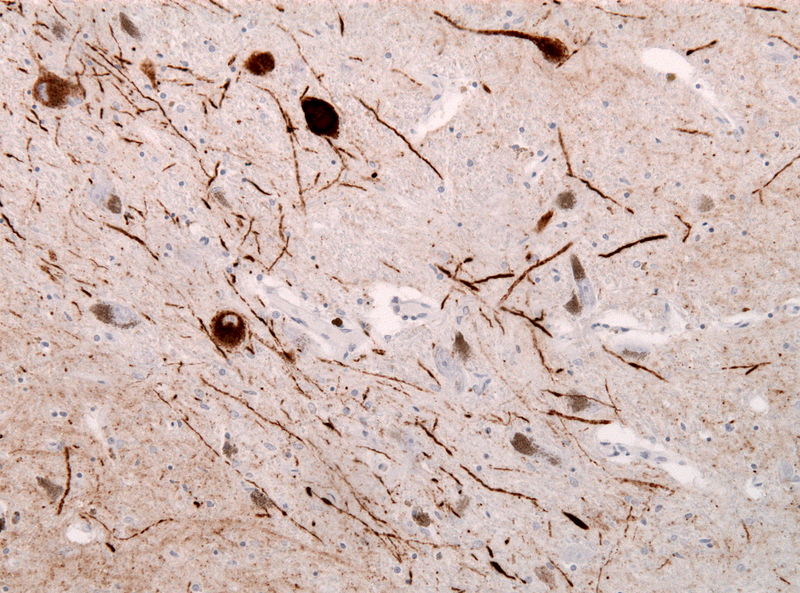Changes in the brain
Neurodegenerative disorders are illnesses that are caused by the death or restructuring of neurons in parts of the brain. communicate with each other to perform various brain functions, such as thinking, remembering, and planning and co-ordinating movements. When they degenerate or are lost completely, these tasks can become increasingly difficult.
Neurodegenerative diseases are more common in people over the age of 65. Examples include:
- Parkinson’s disease – A condition caused by a loss of nerve cells in part of the brain called the substantia nigra. People with Parkinson’s disease often shake involuntarily, experience muscle stiffness and have difficulties with movement, among other symptoms.
- Alzheimer’s disease – The most common form of dementia, Alzheimer’s is associated with
ongoing decline in brain function and initially affects memory, thinking skills and other mental abilities. - Lewy body dementia – A form of dementia in which protein deposits, known as Lewy bodies, develop in the brain regions associated with thinking, memory and movement.
Immunohistochemical staining of Lewy Neurites in a case of Lewy Body Dementia (DLB). Image credit: Jens Florian (2010). CC BY-SA.
Many older adults with these illnesses also see, hear, feel, taste and smell things that others do not. Visions are perhaps the most common experiences, with experiences of seeing (often brightly coloured) people, animals and objects being one of the key symptoms of dementia with Lewy bodies. Visual hallucinations also occur in Alzheimer’s, but usually in the later stages.
Experiences of feeling or sensing the presence of a being nearby are also frequent in people with neurodegenerative conditions, particularly in cases of Parkinson’s disease. Some studies have found that as many as 50% of participants with Parkinson’s have presence experiences. Voices have also been reported, but they seem to be much less widespread.
How common are voices in people with these conditions?
, scientists estimate that nearly 9% of people with Parkinson’s disease and approximately 30% of people with Lewy body dementia have experiences of hearing voices and other sounds. As most research in this area has tended to concentrate on visions and sensed presences, little can be said with certainty about what these voices are like, how they progress over time, and how they relate to other unusual experiences in these conditions.Practical advice
Hallucinations that occur as part of neurodegenerative diseases can sometimes be distressing for elderly people and their families and friends. The following resources provide information and practical advice that may help you and the person you care about cope:
Ten ways to respond to dementia hallucinations in seniors, Daily Caring
Hallucinations and delusions, Parkinson’s UK
Hallucinations in people with dementia, The Alzheimer’s Society
Sight, perception and hallucinations in dementia, The Alzheimer’s Society
Hallucinations and false ideas, Dementia Australia

